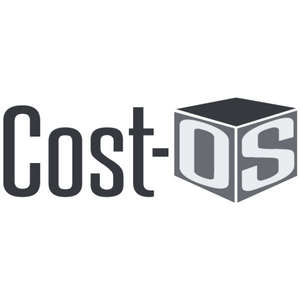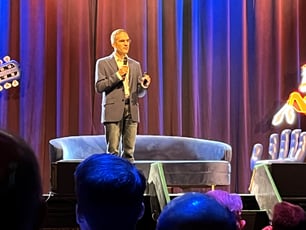When Fastest Isn’t Always Better in Business
This may sound contradictory to our regular tune, but faster isn’t always better. Some things require time to create the best outcomes.

Americans value and expect speed and get frustrated when something moves slower than we want it to. It could be a webpage, a house project, healing from an injury, or a phone call with customer service…how long does it take for you to lose your patience?
It’s not okay. We won’t wait. We don’t have the time…
We want everything faster—in our personal lives and in business. It’s probably the reason why Americans work more hours per week than most countries in the world. Why more than half of us don’t take our vacation time, why 4 out of 5 of us don’t take an actual lunch break. And why we don’t ever fully disconnect from work.
Somehow, we think getting everything done as quickly as possible is going to get us… what exactly? Promoted to CEO? Making millions of dollars? Early retirement? (Which, nope. We’re actually working longer than we have ever before.)
So, where has this culture of speed come from and what have we been promised we’ll get if we reach this hypothetical perfect pace?
That’s a good question and not one that can be answered instantly. #SorryNotSorry
What we can answer right now though is, faster isn’t better at the cost of accuracy.
Sam Lawrence, Vice President of Preconstruction at Findorff, tells a story about how an estimating software company called him and said they could get Sam and his team up and running in two weeks with a new estimating system.
Sounds tempting, right? But let’s think about this.
It’s a Marathon Not a Sprint
You have MASS amounts of data scattered in many different places. Some might be stored in shareable locations, but others are probably housed on an individual’s computer…perhaps in a different state. You might even have information on paper still.
Gathering every piece of information you need to complete a transfer to a data-based estimating system alone will take longer than two weeks. How can a software company filter, organize, and customize years and years of your data in two weeks? Enterprise software of any kind just doesn’t work like that. Much less the time it takes to get fully implemented and trained on the new platform.
This particular estimating software Sam speaks of is an out-of-the-box software that requires its users to change the way they work. And one thing we know about our industry is that change ain’t easy and it certainly doesn’t happen overnight. Precon isn’t an out-of-the-box job, so your software solutions shouldn’t be either.
Slow and Steady Wins the Race
Corners are cut and avoidable mistakes happen when you’re rushing just to the finish line. When your only focus is meeting that deadline, you lose track of the details and aren’t taking the time to think through the estimate critically. Inevitably, this race leads to rework, which is an incredibly inefficient process.
When you have the right tools in place that automate those tasks that don’t require your excellent estimator skills and you can slow down, you are able to think through the details and provide an accurate estimate to owners. Entrepreneur and author, Faisal Hoque writes, “When we slow down, we notice both the details and their potential repercussions. We ask more and better questions and come to more and better conclusions. The less important things fall by the wayside as we focus more slowly yet effectively on the things with the greatest impact.”
At the end of the day, what do you want? Do you want to:
A: Present a sloppy, inaccurate estimate to an owner just in the nick of time?
Or
B: Present a defendable estimate that offers the best project decisions (also on time?)
Stop and Smell the Roses
 When constantly rushing, our bodies are in a heightened state of alert, causing stress and anxiety, which can become chronic. Not only is this bad for us physically, but it is also bad for us mentally. It’s doubly bad when our relationships outside of work suffer.
When constantly rushing, our bodies are in a heightened state of alert, causing stress and anxiety, which can become chronic. Not only is this bad for us physically, but it is also bad for us mentally. It’s doubly bad when our relationships outside of work suffer.
This go go go is one of the main reasons why people are leaving precon. We have one employee at Beck Technology who left estimating because they didn’t have time to start a family.
This isn’t something traditionally openly talked about in our industry, but the winds of change are a blowin.’ Albeit anonymously, preconstruction professionals are talking about the toll the job takes on them now more than they probably ever have.
Once we standardize the way precon is performed, we can standardize the culture of precon. One where estimators are recognized for the impact they make on a project, where they are regarded as experts in offering the best project decisions to owners. One where the boss respects that their time at home is just as valuable as their time spent in the office.
So, no faster isn’t always better. When there’s so much at stake, it is true that good things come to those that wait.

-1.png?width=112&height=112&name=image%20(4)-1.png)















